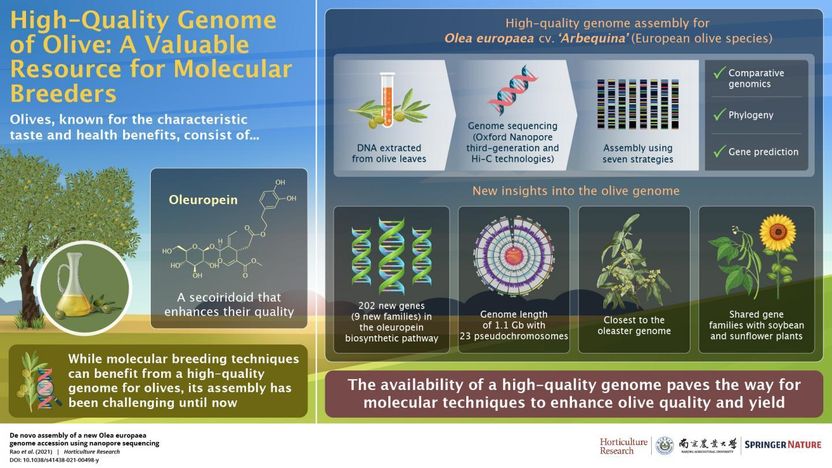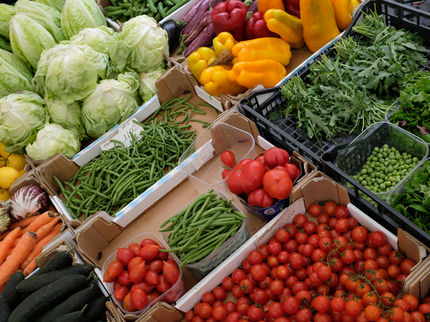Like your olives bitter?
Molecular breeding can make them even better!
Advertisement
olives, well-known for their characteristic bitter taste, are in high demand owing to the popularity of the oil that's derived from them. The health benefits of olive oil are well known, ranging from antiviral, anti-cancer, to even anti-hypertensive effects. These benefits are attributed to "oleuropein," the most abundant olive secoiridoid found in olives.

The availability of a high-quality genome paves the way for molecular techniques to enhance olive quality and yield.
NJAU academic journals
An efficient method to enhance the quality of plant products is by using molecular methods to manipulate their genes and enhancing their yield. With olives, however, this is still a challenge, because of a lack of sufficient genome data.
So far, the genomes of two European olive varieties have been sequenced. But to fully decipher the sequence composition of the genetic material, computationally assembling these genomes is essential. This has been difficult to do with olives, owing to the high number of repetitive sequences in their genomes and their complex nature.
A team of scientists from China, led by Dr. Guodong Rao, sought to address this challenge by using the latest sequencing technologies to assemble these genomes. Dr. Rao explains, "In our study, a chromosome level high-quality olive genome was obtained, which largely improved the previous version of the genomes." Their study has been published in Horticulture Research.
For their study, the scientists first collected European olive leaf samples and extracted their DNA. Then, they used advanced sequencing technologies called "Oxford Nanopore third-generation sequencing" and "Hi-C" to obtain the sequences and performed seven different strategies to assemble the final genome. The final genome that they obtained underwent phylogenetic analysis and comparisons with other related species of plants.
The team's findings led to the successful identification of nine gene families with 202 genes involved in the biosynthesis of oleuropein, which is twice as many as were known until now! The scientists also revealed that a part of olive DNA is similar to that of soybean and sunflower. They found olives are genetically closest to the oleaster plant, also called the Russian olive.
Dr. Rao highlights the applications of this study, "Through the high-quality genome map we determined, it is possible to cultivate olive varieties and olive oil of higher quality in the future."
Hopefully, this research will find its way in olive breeding soon!

































































